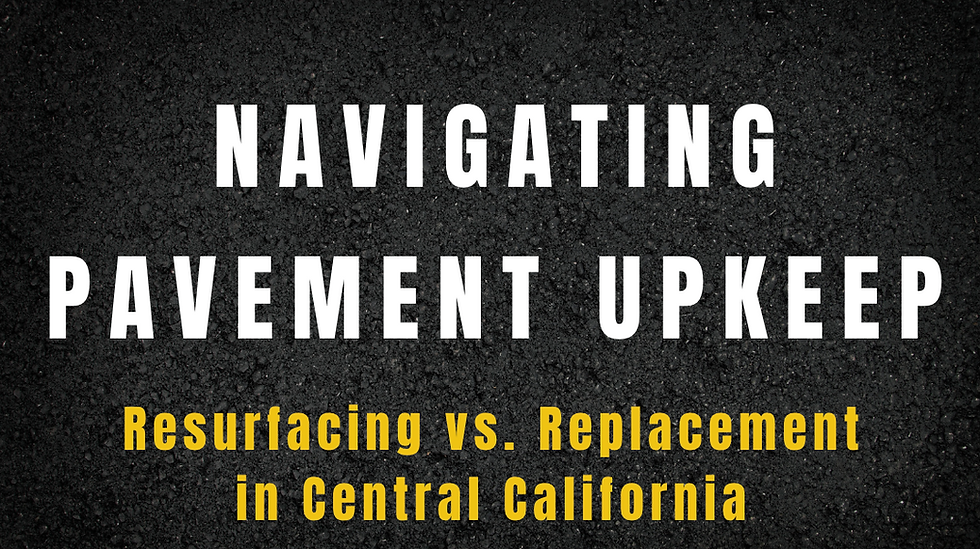How Technology Has Changed How We Pave: A Journey of Innovation
- Central Coast Paving
- Sep 18, 2023
- 2 min read

From the Roman roads of antiquity to the bustling highways of today, the methods of paving have seen significant evolutions. In recent decades, the most transformative changes have come not just from new materials or techniques, but from the rapid advances in technology. Today, the art of paving is as much about digital sophistication as it is about asphalt and aggregates. Let's explore the groundbreaking technological advancements that have reshaped the paving industry, amplifying efficiency and ensuring quality like never before.
Technological Advancements in the Paving Industry
3D Modeling and Digital Mapping:
Earlier, paving projects largely relied on 2D sketches and physical site surveys. Today, 3D modeling tools offer detailed digital representations of the project area, allowing for precise planning and execution.
GPS and Telematics:
GPS-guided machinery ensures pinpoint accuracy in paving, reducing errors and rework. Telematics, on the other hand, offers real-time data on machinery, including location, fuel usage, and operational status, facilitating optimal equipment utilization.
Drones:
Unmanned aerial vehicles, commonly known as drones, are now used for aerial surveys. These provide high-resolution images of project sites, enabling efficient project monitoring and planning.
Automated Machine Control Systems:
These systems automatically adjust machinery based on input data, ensuring consistent application of materials and enhancing overall pavement quality.
Recycled Asphalt Technologies:
Innovative machines can now take old, worn-out asphalt, recycle it, and produce fresh, quality asphalt, promoting sustainability in the paving process.
How Technology Improves Efficiency
Reduced Human Error:
Digital mapping, GPS, and automated systems minimize manual errors, ensuring the job is done right the first time.
Faster Project Completion:
With real-time data and automation, project phases can be streamlined, leading to faster completion times.
Optimal Resource Utilization:
Telematics allows managers to monitor and allocate machinery where it's most needed, reducing downtime and ensuring that resources are used efficiently.
Data-Driven Decision Making:
The wealth of data provided by these technological tools means decisions are based on solid evidence, not just intuition.
Enhancements in Quality Assurance
Consistent Results:
Automated machine control systems ensure a uniform application of materials, leading to consistent and high-quality paving results.
Real-time Quality Checks:
Drones and digital imaging tools allow for immediate inspection and feedback, ensuring quality standards are met at every phase.
Sustainable Solutions:
With recycled asphalt technologies, roads aren't just built to high standards, but they're also environmentally friendly, representing quality in both construction and conservation.
Comprehensive Project Records:
Digital tools create detailed logs and records of every project phase, providing a transparent trail for quality assurance checks and future reference.
Conclusion
The fusion of technology and traditional paving practices has revolutionized the industry. Gone are the days of solely relying on manual methods. Today, digital sophistication meets hands-on expertise, producing roads and pavements that are not only built faster but are also of superior quality. As we drive on these modern roads, we're not just traveling on asphalt and aggregates; we're cruising on the pinnacle of technological innovation. Contact the professionals at Central Coast Paving at (805) 665-3292 to see these technological advancements in action on your next paving project.




Comments